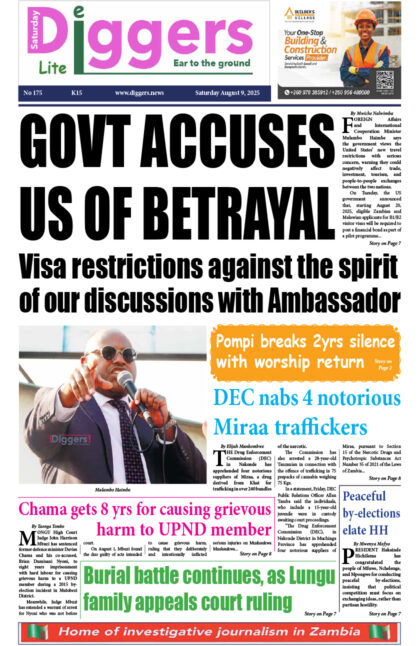Wakanda is a fictional East African paradise made famous by the 2018 blockbuster film ‘Black Panther’. It is a well-developed, high-tech, highly functional country inhabited by warriors who possess mystical powers through a special substance only found in Wakanda called vibranium. Wakanda is a powerful and well-governed country. It is a proud nation which has its own official African language. As a result, it has garnered the respect of countries far outside of its borders.
Back on the real African continent, one struggles to find a country that matches the description of Wakanda in all respects. If anything, there is a growing instability around the continent that is unsettling. What we see is the spread of populism and authoritarianism and what appears to be contempt for democracy, human rights and the rule of law. Unfortunately, the East African nation of Tanzania, a country which like Wakanda has a proud political, cultural and linguistic heritage, typifies this.
Like Zambia, neighbouring Tanzania has long been seen to be a peaceful and stable nation. It has a proud history of having liberated many other nations on the African continent under the great “Mwalimu”, Julius Nyerere. Just as in Zambia, this narrative is under threat. The current government of President John Magufuli, once hailed as the “bulldozer” for his apparent efficiency in dealing with corruption, is fast becoming a dictatorship where fear reigns. It is becoming an inhospitable environment for those who wish to speak truth to power.
A recent example of the changing character of Tanzania’s democracy is the victimisation of the Tanzanian organisation ‘Twaweza’ whose name means ‘we can make it happen’ in Swahili. Twaweza did the unthinkable by publishing the results of a local poll on 5th July 2018 showing that President Magufuli’s popularity was falling. Twaweza’s Executive Director, Aidan Eyakuze, has subsequently had his nationality questioned and his passport confiscated. Twaweza recently joined a coalition of civil society groups to campaign against the enactment of a Political Parties Bill which will have the effect of giving the Registrar of Political Parties sweeping discretionary powers to control political parties’ activities and statements with little or no recourse. Such legislation might lead the country once more down the path of a one party “democracy”. There is trouble in “Wakanda”.
Even more worrying are reports by opposition leader and former Law Society of Tanganyika President, Tundu Lissu, of enforced disappearances and unexplained killings. Lissu himself survived an attack in which unknown assailants shot at his vehicle 38 times hitting his body 16 times. At the time of the attack, Lissu was facing several criminal charges which he says are politically motivated. The office of the lawyers defending him was also mysteriously bombed. Lissu is alive but has had to endure several corrective surgeries.
Zambia is surrounded by eight neighbours including Congo DRC, Angola, Mozambique, Namibia, Malawi, Zimbabwe, Botswana and Tanzania. It is fair to say that Zambia, experiencing an apparent wave of populism, corruption and impunity, fits into its neighbourhood quite nicely – albeit as the smiley, friendly, neighbour. Looking around this neighbourhood, there are no credible champions of democracy, constitutionalism and the rule of law. So, when the citizens of any of the countries are under siege by their governments, there is nowhere to turn. Regional bodies made up of the Continent’s political leaders appear to be toothless and are plagued by cronyism. We citizens have no choice but to save ourselves. That is what makes the work of Twaweza so admirable; it is made up of citizens standing up for their country. We must all do our part to make sure that our countries are places that we want to live in: peaceful, democratic, prosperous and liberating. “Twaweza”, we can make it happen.























